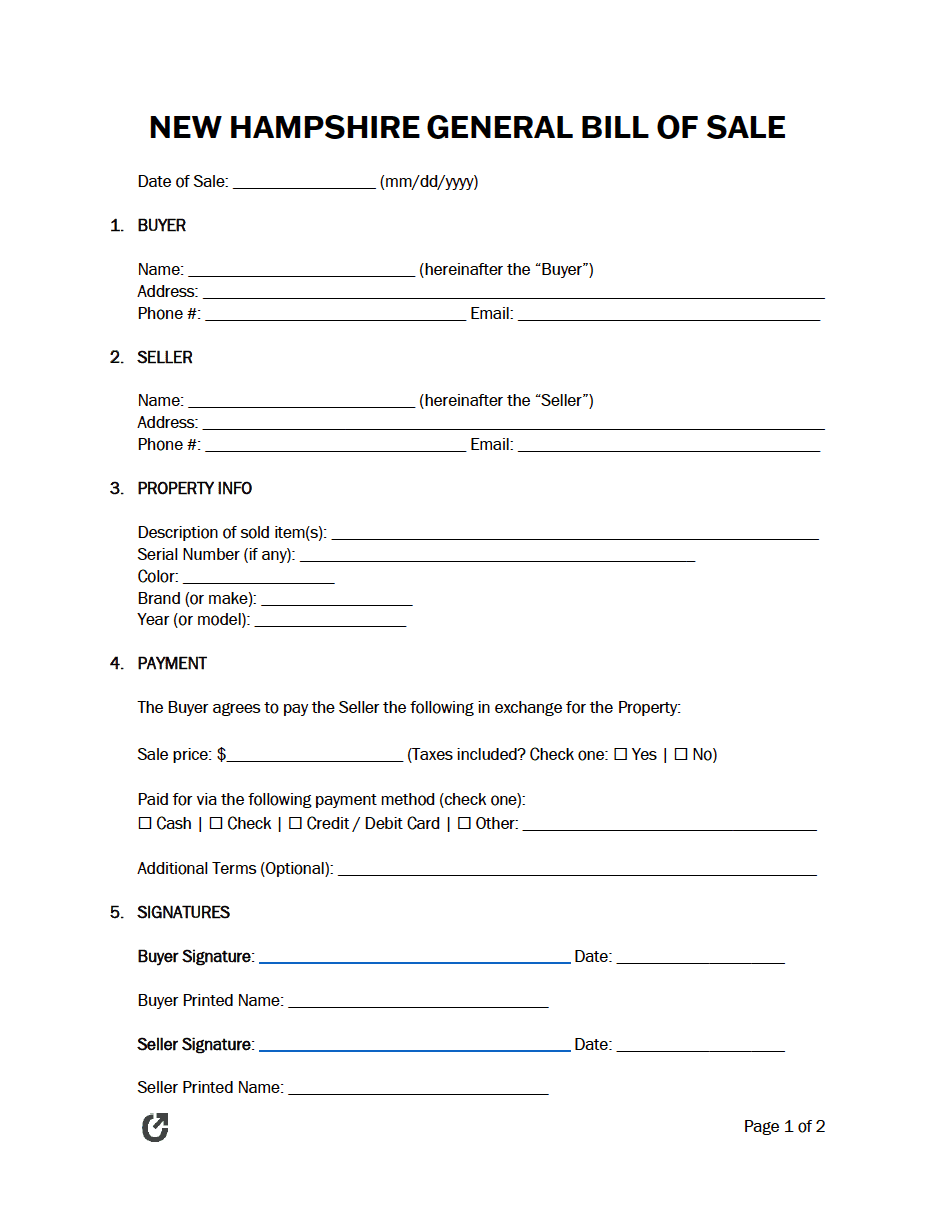New Hampshire General Bill of Sale Form
A New Hampshire general bill of sale form compresses the data of a deal between two (2) people. The exchange can involve money; however, it can also happen via gift or trade. A bill of sale has a role in formally recording the ownership change. It also certifies the transaction, thus enabling the buyer or seller to confirm their agreement. Without the document, neither person can officially prove the transfer occurred unless a title or other certification exists.
| Signing Requirements: The transferor and transferee must enter their signatures into the form. |
What is a New Hampshire General Bill of Sale?
A New Hampshire general bill of sale encapsulates a transaction’s intricate details. It specifies the date of the deal, purchase price, and both parties’ names, primary residences, telephone numbers, and email. In addition, it describes the personal property’s information, such as its description, serial number, color, make, and model. The buyer and seller do not need to list the sale price if a trade or gift occurred, but they should note it in the form and include its approximate value.
When is a Bill of Sale Needed?
Residents need a completed and signed bill of sale form for boat and motor vehicle transactions. The document ensures that both parties have physical evidence of the transfer. In turn, the new owner can prove their ownership if they sell it again. Similarly, the previous possessor can verify that they do not have legal responsibility for the item. Other sales do not require the form, but the state highly recommends it for safety and legality reasons.
Do I Have to Notarize the Form?
New Hampshire does not require buyers or sellers to have the form notarized. However, this added feature gives the bill of sale more authority. State and law offices accept notarized documents more often as they verify the information and both parties’ signatures.
